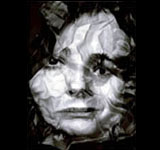|
|
|
Following the decision of the Heads of State and Government of the Council of Europe member states, this Council of Europe Campaign was launched at a high-level conference in November 2006 in the presence of decision-makers from various fields: ministers, parliamentarians, representatives of local and regional authorities, non-governmental representatives and representatives of international intergovernmental organisations. Over the course of a year and a half, they have heeded the call for action and have contributed to the success of the Campaign by sparking and supporting many initiatives in law, policies and practice with the aim of stopping violence against women. This Conference marked the end of our Campaign, but it did not represent the end of the united effort to combat the serious violation of human rights that gender-based violence represents. At this Conference, the Council of Europe Task Force to Combat Violence against Women, including Domestic Violence, presented its assessment of the impact of the Campaign in Council of Europe member states and of the national measures taken to prevent and combat violence against women. It has also presented recommendations on future action by the Council of Europe to prevent and combat violence against women. On the occasion of the Closing Conference of the Campaign the three dimensions of the Campaign, representatives of the Committee of Ministers, the Parliamentary Assembly, the Congress of Local and Regional Authorities and the Commissioner for Human Rights of the Council of Europe attended the Conference, with representatives of all Council of Europe member States. In addition, Canada, the Holy See, Japan, Mexico, the United States of America, as well as a number of international intergovernmental and non-governmental organisations working in the field of violence against women were invited to attend in an observer capacity. The Conference was organised by the Gender Equality and Anti-Trafficking Division of the Directorate General of Human Rights and Legal Affairs of the Council of Europe. - Programme |

 Print
Print  Send
Send  Franšais
Franšais